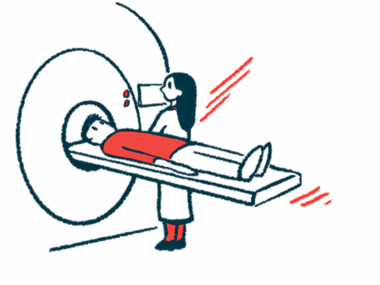Mavenclad’s Ability to Lower RRMS Relapse Rates May Last Years, Study Says
Written by |

Treatment with Mavenclad (clabridine) reduces the frequency of relapses in people with relapsing-remitting multiple sclerosis (RRMS), with benefits appearing to be evident two years after patients stopped taking the treatment, new data suggest.
These findings were in the study, “Analysis of frequency and severity of relapses in multiple sclerosis patients treated with cladribine tablets or placebo: The CLARITY and CLARITY Extension studies,” published in Multiple Sclerosis Journal. The study was funded by EMD Serono (Merck KGaA outside of the U.S. and Canada), which markets Mavenclad.
Mavenclad is widely approved to treat RRMS; in the U.S., it is also approved to treat active secondary progressive MS. The oral therapy is given in two courses of treatment over two years, typically consisting of two treatment weeks spaced one month apart at the beginning of each treatment year.
Its effectiveness was demonstrated in the CLARITY Phase 3 clinical trial (NCT00213135), in which over 1,300 adults with RRMS were randomized to Mavenclad or a placebo for two years.
Patients who completed CLARITY were invited to enroll in its extension study (NCT00641537), during which they were again randomized to two more years of Mavenclad’s use or to a placebo.
Prior data from the trial and its extension broadly demonstrated that Mavenclad treatment can reduce relapse rates.
A team led by researchers at EMD Serono performed a post hoc analysis of data from CLARITY and its extension trial. (A post hoc analysis is one done after the trial is finished.)
Specifically, the researchers focused on 98 trial participants who were given Mavenclad at the approved dose (3.5 mg/kg) during the initial CLARITY trial (years one and two), and then randomized to placebo in the extension trial (years three and four).
These people underwent only the approved two-year course of Mavenclad, with no additional treatment for the next two years. Their demographics were similar to those of the overall trial: mean age was in the late 30s, and about two-thirds were female.
Mirroring prior results, the new analysis showed that Mavenclad significantly reduced the risk of relapses — by about threefold — during the CLARITY trial. Treatment also reduced the risk of severe relapses requiring hospitalization and/or steroid use. These effects were not influenced by age or prior treatments.
The reduction in relapse rates seen at the end of the initial two-year trial was sustained over the two years of the extension trial, when these 98 people went without further use of Mavenclad.
By year four of CLARITY — the close of its extension study — nearly three-quarters of participants were relapse free, and nearly nine in 10 were free of relapses severe enough to require hospitalization.
“Patients who received [Mavenclad] had a significant reduction in the frequency and severity of relapses during CLARITY,” the researchers concluded. “This benefit was sustained in CLARITY Extension without further treatment.”
The post hoc analysis did not identify any new safety-related findings. Common side effects of Mavenclad include headaches, the common cold, and low levels of white blood cells, which can increase the risk of certain infections.


